News
-
 Humans
HumansWhere you grew up may shape your navigational skills
People raised in cities with simple, gridlike layouts were worse at navigating in a video game designed for studying the brain.
-
 Astronomy
AstronomyWhen the Magellanic Clouds cozy up to each other, stars are born
The Magellanic Clouds, the two closest star-making galaxies to the Milky Way, owe much of their stellar creativity to each other.
By Ken Croswell -
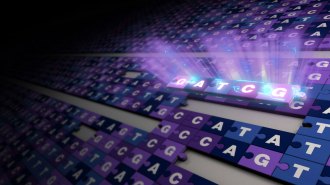 Genetics
GeneticsWe finally have a fully complete human genome
Finding the missing 8 percent of the human genome gives researchers a more powerful tool to better understand human health, disease and evolution.
-
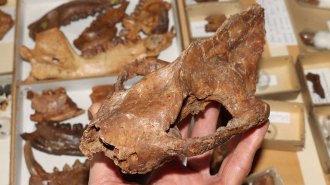 Paleontology
PaleontologyMammals’ bodies outpaced their brains right after the dinosaurs died
Fossils show that mammals’ brains and bodies did not balloon together. The animals’ brains grew bigger later.
-
 Anthropology
AnthropologyNorth America’s oldest skull surgery dates to at least 3,000 years ago
Bone regrowth suggests the man, who lived in what’s now Alabama, survived a procedure to treat brain swelling by scraping a hole out of his forehead.
By Bruce Bower -
 Chemistry
ChemistryGrainy ice cream is unpleasant. Plant-based nanocrystals might help
The growth of large ice crystals in ice cream produces a coarse texture. A cellulose nanocrystal stabilizer could help keep the unwelcome iciness away.
By Anna Gibbs -
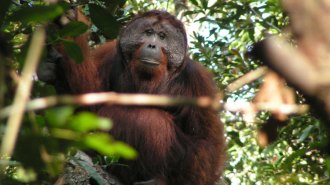 Anthropology
AnthropologySocial mingling shapes how orangutans issue warning calls
The new findings hint at how modern language may have taken root in sparse communities of ancient apes and humans.
By Bruce Bower -
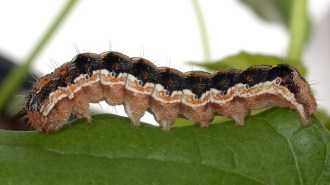 Life
LifeHow a virus turns caterpillars into zombies doomed to climb to their deaths
By manipulating genes used in vision, a virus sends its host caterpillar on a doomed quest for sunlight, increasing the chances for viral spread.
By Jake Buehler -
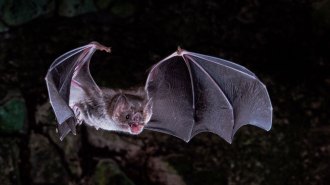 Life
LifeLost genes may help explain how vampire bats survive on blood alone
The 13 identified genes underpin a range of physiological and behavioral strategies that the bats have evolved.
-
 Animals
AnimalsHere’s how boa constrictors squeeze their dinner without suffocating themselves
Carefully controlled breathing allows boa constrictors to pull off their signature move without cutting off their own air supply.
-
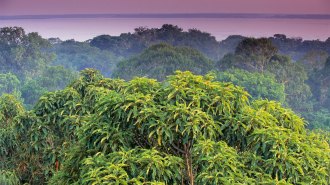 Climate
ClimateForests help reduce global warming in more ways than one
Trees are often touted as bulwarks against climate change for their capacity to sequester carbon, but that’s just one part of the story.
By Nikk Ogasa -
 Astronomy
AstronomyHere’s the best timeline yet for the Milky Way’s big events
A new study puts more precise dates on when the Milky Way formed its thick disk and collided with a neighboring galaxy.
By Ken Croswell